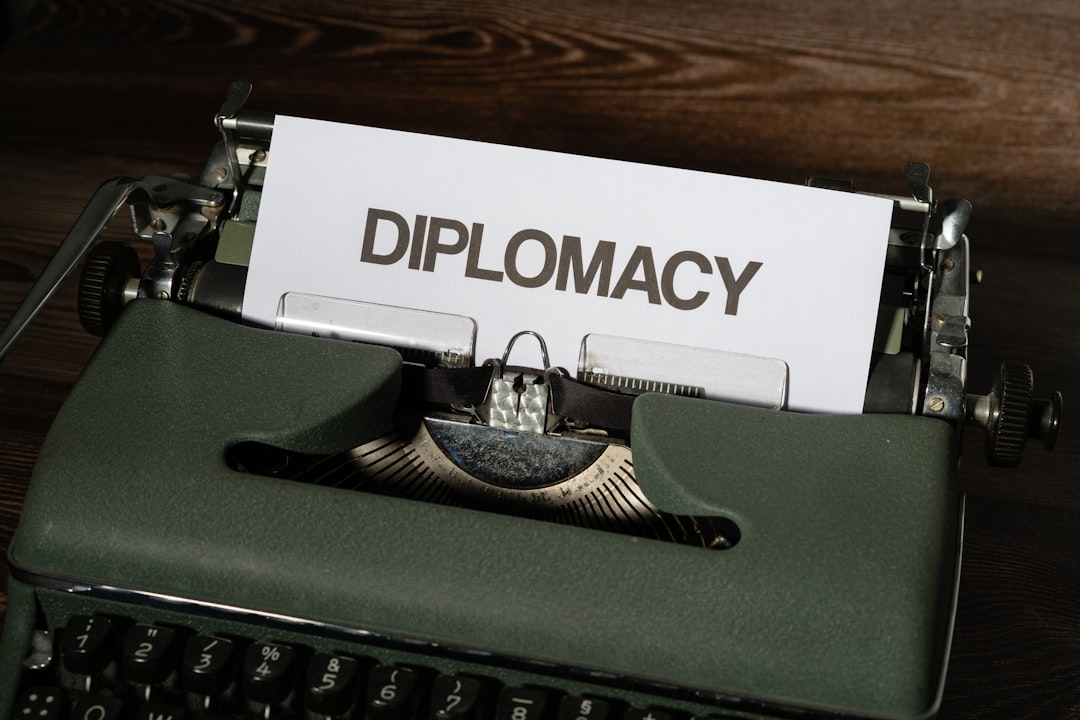
Abusive Diplomacy Tactics Undermine Global Relations: The Case Against Coercion
In a world that is increasingly interconnected, it seems rather ironic that diplomacy, the art of negotiation and dialogue, has become a battlefield for coercion and manipulation. It’s as if the grand architects of global governance, those attending the glitzy World Economic Forum, have decided that soft power is just too soft for their liking. Instead, we are witnessing the rise of abusive diplomacy tactics that not only undermine global relations but also threaten the very fabric of international cooperation.
The New Age of Coercive Diplomacy
Diplomacy, in its essence, is about building bridges, not walls. Yet, we are in an age where countries are wielding their economic might like a sledgehammer, demanding compliance with the threat of sanctions or the promise of aid. This coercive diplomacy is not just a strategy; it’s a full-blown assault on the principles of mutual respect and cooperation that should define our global interactions.
Take, for example, the recent trends in international relations where nations are using economic sanctions as a primary tool of foreign policy. It’s like playing a game of Monopoly, except instead of passing Go, you lose everything. This tactic not only punishes the target nation but also affects innocent civilians, creating a ripple effect of resentment and hostility. Is this really the best we can do? If the goal is to foster global harmony, using coercive tactics is akin to setting fire to the very bridge you’re trying to cross.
The Consequences of Abusive Tactics
The consequences of such abusive tactics are dire. They breed mistrust among nations, leading to a fragmented international community that is more concerned about self-preservation than collaboration. When countries resort to coercion, they send a signal that diplomacy is dead and that might makes right. This disregard for dialogue and negotiation can lead to a cycle of retaliation, where nations feel compelled to respond in kind.
Furthermore, the fallout from these tactics can be long-lasting. Countries that have been subjected to economic coercion may seek alliances with adversaries, thus creating new geopolitical tensions. This is not just theory; we can see this unfolding in real-time. Nations that once enjoyed cordial relations are now pivoting towards alliances based on shared grievances against those who have employed coercive tactics. The result? A world that is more divided and hostile, all because some leaders think they can bully their way to success.
A Call for Diplomacy Over Coercion
It’s time for a paradigm shift. Instead of resorting to abusive tactics, nations should prioritize genuine diplomacy rooted in respect and mutual benefit. This means engaging in honest dialogue, listening to the concerns of other nations, and finding common ground. It’s not just a nice idea; it’s essential for the survival of our global community.
The experts agree. A recent study by a leading think tank highlighted that countries that engage in collaborative diplomacy are more successful in achieving sustainable peace and prosperity. When nations focus on building relationships rather than tearing them down, they create a healthier international environment. It’s as if they’ve discovered the secret sauce to successful diplomacy – and spoiler alert: it’s not coercion.
Counterarguments: The Illusion of Justification
Of course, there are those who argue that coercive diplomacy is sometimes necessary to achieve certain ends. They claim that tough love is essential for countries that refuse to play by the rules. But let’s be honest here: this is often just a thinly veiled excuse for bullying. The notion that we can force compliance through threats is not only morally questionable but also strategically flawed. History has shown us time and again that coercion breeds resentment and resistance, not compliance.
In conclusion, the era of abusive diplomacy tactics must come to an end. The stakes are too high, and the consequences too severe. Instead of using economic might as a weapon, let’s focus on building a world where dialogue reigns supreme. After all, in the grand game of international relations, cooperation is not just preferable; it’s essential for our collective future. The question is: will we choose to build bridges, or will we continue to burn them? The answer lies in our willingness to embrace genuine diplomacy over coercive tactics.
The time for change is now, and it starts with each one of us advocating for a more respectful and cooperative approach to global relations.
Tags: opinion, editorial, current events, abusive diplomacy, global relations, international cooperation, coercive diplomacy


